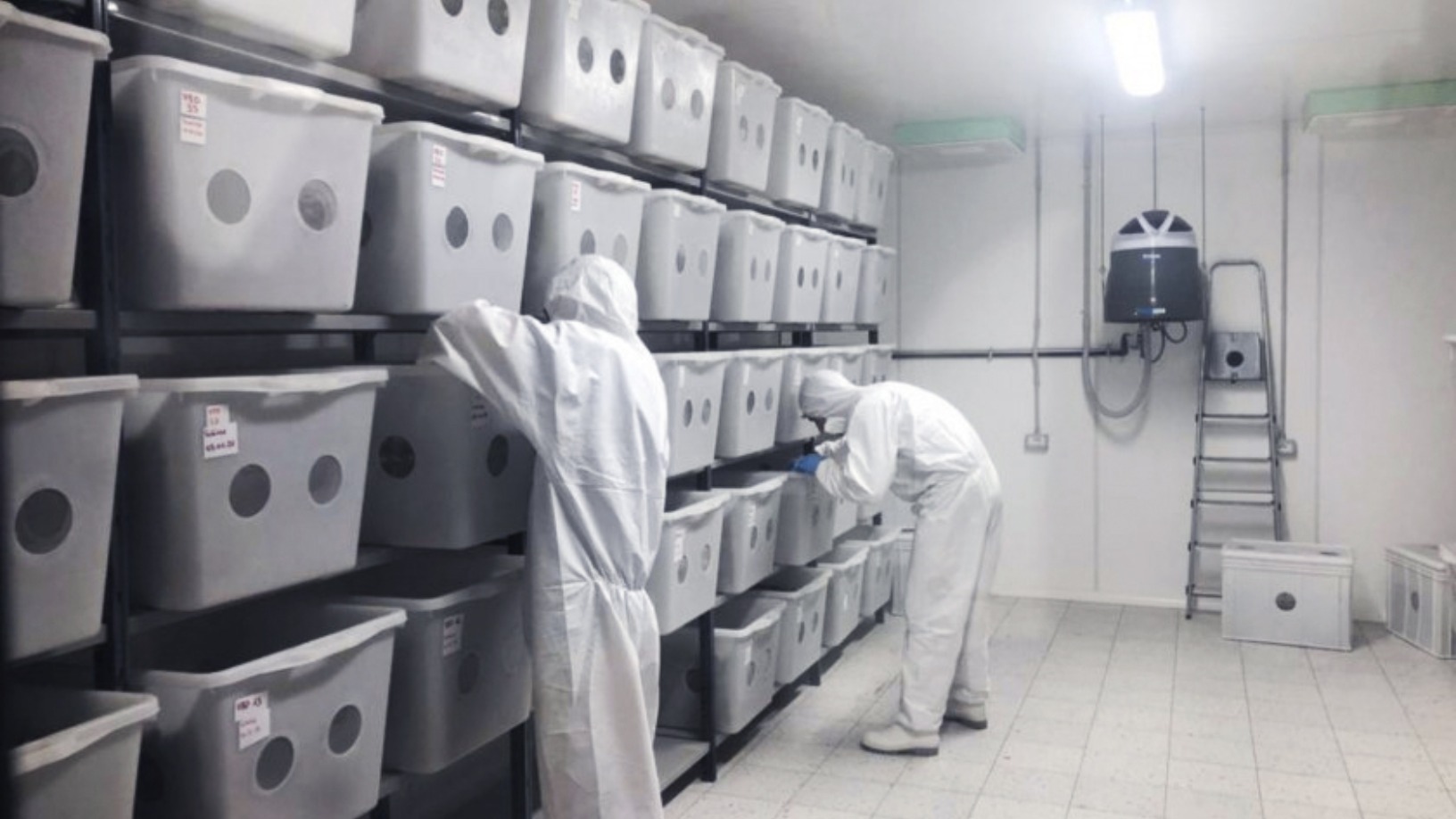Many people cannot imagine eating insects, yet a growing number believe that insects will be a significant part of the future of food. Malaysian startup Ento was founded on that belief and makes a range of insect-based foods using crickets and cricket larvae, from whole-roasted crickets to cookies and pastry.
The company’s latest product is EntoMeat, which combines insect and plant-based protein to make minced meat, burger patties and sausages. Ento’s products are available through its online shop and food delivery apps GrabFood, Foodpanda, and AirAsia Food.
Founded in 2018, Ento resulted from its CEO and founder Kevin Wu’s visit to a Mexican taco stall while on sabbatical. The taco’s toppings included fried grasshopper and crickets, and Wu learned that these ingredients, which “taste like shrimp,” are commonly consumed as delicacies.
“When I went back to my hotel room, I looked up why people aren’t eating more insects. I learned that there is actually a growing trend of people consuming insects,” Wu told CompassList. He also found significant research into using insects for human consumption and livestock feed, including a 2013 UN Food and Agriculture Organization (FAO) report.
“Farming insects requires far fewer resources, including feed, water and space, compared to conventional livestock,” Wu said. “I thought, if I can solve the product development and marketing problems of insect-based food, I can tap into a vast market.”
Ento has raised funding from Singapore-based venture capital firm RAPZO Capital, Sunway iLabs, the venture builder arm of Malaysian conglomerate Sunway Group, and undisclosed angel investors. Wu declined to specify the total amount raised. He said Ento is actively seeking potential investors and strategic partners.
No visible insect parts
In early 2019, Ento launched its first product line, whole-roasted crickets flavored with different seasonings. Wu said that this type of product was the easiest to launch, as similar food could be found in Thailand and other countries. “As expected, we got mixed responses, but we did quite a good job reaching out to many early adopters,” Wu said.
If I can solve the product development and marketing problems of insect-based food, I can tap into a vast market
Ento adjusted its strategy to reach people who were more likely to try insect-based foods. Instead of opening stalls at supermarkets or fairs, the company promoted its products at specialized events focusing on food technology and alternative foods. During this time, Ento stopped farming crickets to concentrate on improving its products. “[Insect farming] is going to be a challenging business in the long run as prices go down and it becomes a buyers’ market,” Wu said.
Later in 2019, Ento also developed new products that do not have “visible” insect parts, namely, cricket powder, incorporated as insect protein into bread and pastries. The powder, which has received a positive response, is also sold to bakeries and snack manufacturers.
EntoMeat is the company’s “third-generation” product, which combines insect- and plant-based protein sources to create a mincemeat-like product shaped into, among others, patties, meatballs and sausages. “We also include various spices to give it an umami flavor similar to mushrooms,” Wu said.
Wu said that in developing EntoMeat, the team faced some challenges working with insect protein, and the process involved much trial and error, but the team studied how the proteins interacted to affect the texture and integrity of the product. Ento’s research led them to add beetroot juice to mimic the visual effect of blood on beef patties.

Seeking partners
Marketing and consumer adoption are two crucial challenges that Ento faces. Covid-19 hampered its efforts to introduce its products to captive audiences at conferences and fairs, so the company took a page out of the plant-based food book and is marketing directly to restaurants.
“Beyond Meat and Impossible Foods have worked with really good restaurants, and we’re following that strategy. For traditional products, like a typical beef burger sold by McDonald’s, it’s hard to compete against their price. I think we work best when our products are introduced in person at higher-end restaurants,” Wu said.
As the market for alternative proteins continues to grow, Wu is confident that Ento can hold its own against plant-based protein products because insect-based food can provide certain essential amino acids and nutrients that plants still do not.
That said, he does not think it has to be a winner-takes-all situation. “The future of food is variety. In a sense, I don’t see these companies as competitors," Wu said. "We are part of a community promoting more sustainable ways to consume food."
Ento will likely expand to major cities like Singapore, Bangkok and Jakarta in the future with early adopters in mind. Wu is seeking partners to get into these markets. “Consumers in these urban areas are more open to alternative proteins and are willing to pay extra to consume healthier and more sustainable proteins,” he said.
Going forward, Ento will focus on developing more filling products like EntoMeat. “To follow our mission of providing healthy and sustainable protein, we need to move towards meal-based products that are more substantial and can nourish consumers."











